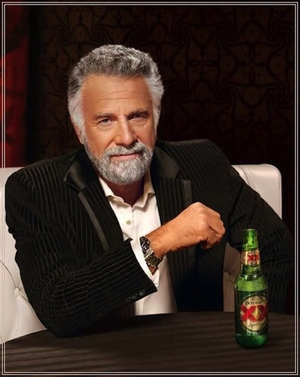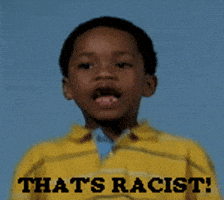superrific
Master of the ZZLverse
- Messages
- 10,718
It's funny, I was thinking about this over the weekend and now the politico article has made it somewhat relevant.
What does it mean when someone uses the n word? Let me specify. Obviously I am not talking about hip hop artists, etc. Also, people whose actions are obviously racist in other aspects are easy to figure out. I don't need Trump saying the n word to know exactly what he thinks of black people.
But here's an example of what I mean. In the 80s, after the mega success of their debut album, Guns N Roses released a sort of weird EP that, IIRC, was mostly acoustic. One of the songs featured the line, "police and n***s, that's right, get out of my way." As a young teen, I liked GnR but was troubled by this line, as you might expect. Then I saw an interview where Axl Rose explained that he wasn't talking about all black people, just a category of black people who deserved the epithet. I found the distinction to be extremely suspicious but I accepted it at the time because it relieved my cognitive dissonance. He wasn't racist; he was just stereotyping while expressing his emotions. Hey, I was either pre-pubescent or barely pubescent so I definitely get the benefit of "I was young" and also I never sang along. Anyway:
I'm pretty sure Axl Rose was/is not a hardcore racist. I think he was looking for attention. Bands sometimes do that. He knew there was something wrong with saying it, but he wanted to say it anyway because rebellion and 'you can't tell me what to do' etc. Hence the interjection, "that's right." He knew what he was doing/saying. So what should we make of that? I don't think it's in the same ballpark as Sex Pistols' God Save The Queen, which was also about smashing convention but in a different and far more acceptable way. It's also short of skinhead racism. Obviously, at a minimum, it was evidence that he was willing to use racism to gain attention, which is, shall we say, considerably less than ideal. But what else does it signify? What does it signify that he would do so?
And what does it signify that people enjoyed that music? I'm not talking here about young kids, but rather adults. I mean, as a young *man* I liked music with pretty gruesome lyrics, though I've usually drawn a line at blatant racism (assuming the lyrics are intelligible; sometimes they aren't and then I didn't much care, even if in some sense I should have). And I still like Big Black, whose lyrics can be misogynist, sometimes extremely so. There my cognitive dissonance was eased by personal testimony from the feminist band Band of Susans, who assured me that Steve Albini wasn't really like that and it was just an act. That is admittedly pretty weak sauce, but it's my private life and I can easily cabin that off. It did bother me enough that I asked the Band Of Susans about it.
I don't have a lot of experience with this, nor any good sense of the relevant sociology. There are people here with far better perspective. I'm hoping to learn. In some sense, this is an academic exercise: one could go through life with a principle of "don't say the n word and don't associate with people who do" and not be sorry for it. For most of us, that's good enough. Still, perspectives welcomed.
What does it mean when someone uses the n word? Let me specify. Obviously I am not talking about hip hop artists, etc. Also, people whose actions are obviously racist in other aspects are easy to figure out. I don't need Trump saying the n word to know exactly what he thinks of black people.
But here's an example of what I mean. In the 80s, after the mega success of their debut album, Guns N Roses released a sort of weird EP that, IIRC, was mostly acoustic. One of the songs featured the line, "police and n***s, that's right, get out of my way." As a young teen, I liked GnR but was troubled by this line, as you might expect. Then I saw an interview where Axl Rose explained that he wasn't talking about all black people, just a category of black people who deserved the epithet. I found the distinction to be extremely suspicious but I accepted it at the time because it relieved my cognitive dissonance. He wasn't racist; he was just stereotyping while expressing his emotions. Hey, I was either pre-pubescent or barely pubescent so I definitely get the benefit of "I was young" and also I never sang along. Anyway:
I'm pretty sure Axl Rose was/is not a hardcore racist. I think he was looking for attention. Bands sometimes do that. He knew there was something wrong with saying it, but he wanted to say it anyway because rebellion and 'you can't tell me what to do' etc. Hence the interjection, "that's right." He knew what he was doing/saying. So what should we make of that? I don't think it's in the same ballpark as Sex Pistols' God Save The Queen, which was also about smashing convention but in a different and far more acceptable way. It's also short of skinhead racism. Obviously, at a minimum, it was evidence that he was willing to use racism to gain attention, which is, shall we say, considerably less than ideal. But what else does it signify? What does it signify that he would do so?
And what does it signify that people enjoyed that music? I'm not talking here about young kids, but rather adults. I mean, as a young *man* I liked music with pretty gruesome lyrics, though I've usually drawn a line at blatant racism (assuming the lyrics are intelligible; sometimes they aren't and then I didn't much care, even if in some sense I should have). And I still like Big Black, whose lyrics can be misogynist, sometimes extremely so. There my cognitive dissonance was eased by personal testimony from the feminist band Band of Susans, who assured me that Steve Albini wasn't really like that and it was just an act. That is admittedly pretty weak sauce, but it's my private life and I can easily cabin that off. It did bother me enough that I asked the Band Of Susans about it.
I don't have a lot of experience with this, nor any good sense of the relevant sociology. There are people here with far better perspective. I'm hoping to learn. In some sense, this is an academic exercise: one could go through life with a principle of "don't say the n word and don't associate with people who do" and not be sorry for it. For most of us, that's good enough. Still, perspectives welcomed.




